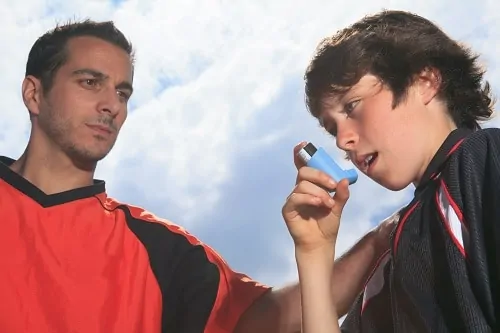
Asthma is the most chronic disease in children and affects nearly 24 million Americans, of which about 6 million are under 18. Asthma is a serious medical condition that, if not treated proactively, can lead to trouble breathing, wheezing, and sometimes, even death. But at our Long Island pediatric dental office, we also know it may have a negative effect on kids’ oral health.
There’s been a long-standing belief that those with asthma have an increased risk for oral health problems, including cavities. Since many asthma sufferers tend to also be mouth breathers, the chance for dry mouth is greater. Dry mouth is a concern for many pediatric dentists. When saliva production decreases, its ability to properly rinse away germs and bacteria diminishes, and the likelihood of developing cavities goes up. Even if mouth breathing isn’t a factor, common asthma medications can also dry out the mouth and decrease saliva flow.
However, recent studies suggest that perhaps there may not be a link between asthma and oral health concerns. Research conducted by the Indiana University School of Dentistry argues that while many children with asthma also have cavities, there are also many who do not. After compiling years of data, the head research doctor concluded that while there’s been a long history of supporting the belief that asthma sufferers are at increased risk for decay and cavities, there may too many variables to concretely conclude a correlation.
Whether the connection between asthma and cavities is true or not, there are some simple things you can do for your child to ward off any negative side effects of asthma or asthma treatments.
As always, the best way to prevent cavities is to encourage your child to brush twice a day, floss once a day, and see their pediatric dentist regularly. We’re always accepting new patients at our Long Island pediatric dental office, so if it’s time for your little one’s checkup, give us a call to schedule an appointment.
Accepting patients from Long Island, Westbury, and all of Nassau County.